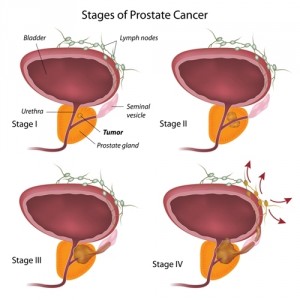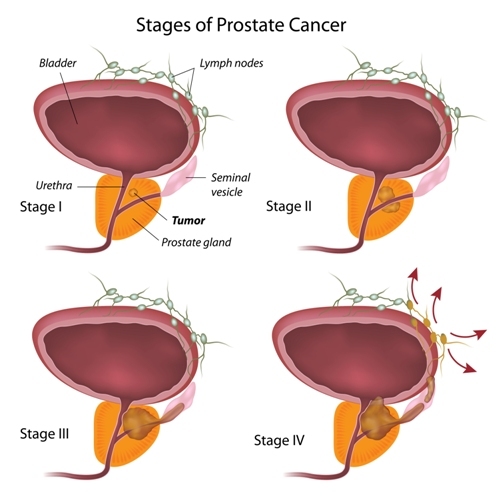 In a new study entitled “Expression and Functional Role of Orphan Receptor GPR158 in Prostate Cancer Growth and Progression” researchers report the discovery of a new promising target – GPR158 – for therapeutics against prostate cancer. The study was published in the journal Plos One.
In a new study entitled “Expression and Functional Role of Orphan Receptor GPR158 in Prostate Cancer Growth and Progression” researchers report the discovery of a new promising target – GPR158 – for therapeutics against prostate cancer. The study was published in the journal Plos One.
Prostate cancer is the second leading cause of cancer-related mortality in men, with new cases diagnosed in 233,000 individuals in 2014 alone resulting in 29,480 deaths in the U.S. according to data retrieved from the National Cancer Institute. During the early stages of the disease, prostate tumor patients are treated with androgen deprivation therapy (ADT), since the tumor feeds on this hormone to grow. However, the disease ultimately progresses to a stage designated as castration-resistant prostate cancer – a more aggressive stage — and becomes resistant to ADTs requiring more aggressive treatments.
In this study, a research team at the Keck Medicine of the University of Southern California (USC) investigated the potential role of G-protein coupled receptors (GPCRs) in prostate cancer due to their increased expression in a variety of cancers, leading to tumor growth. Notably, these receptors are efficient molecular targets for drug therapeutics. Researchers identified that a new member of GPCRs family, GPR158, has an important role in prostate cancer.
The team found that GPR158 promotes tumor growth independently of androgen receptor functions. GPR158 expression is increased in response to androgens, establishing GPR158 as an androgen-responsive element. On the other hand, GPR158 was found to stimulate expression of androgen receptors. The authors were then able to uncover a positive-feedback loop regulated by androgen. This may be important for tumor growth since, in the context of low androgen, GPR158 induces overexpression of the androgen receptor to tumor cells sensitive to low levels of androgens.
The authors also discovered that GPR158 is associated with neuroendocrine transdifferentiation (NED) of epithelial prostate tumor cells, a small group of cells that regulates both growth and differentiation of healthy prostate epithelia cells. Within prostate tumors, NE-like tumor cells are associated with tumor progression and poor prognosis, and with resistance to androgen receptor-target therapies.
Overall, GPR158 seems to be a potential drug target for prostate cancer with the research team currently performing additional studies to uncover GPR158’s downstream pathways.
Lead author Nitin Patel, Ph.D., research scientist at the Institute for Genetic Medicine at the Keck School of Medicine of USC, noted in a press release “When a prostate cancer tumor is in its early stages, it depends on hormones called androgens to grow. Eventually it progresses to a more lethal form, called castration-resistant prostate cancer (CRPC), and is resistant to drugs that block androgen receptors. We found that GPR158, unlike other members of the GPCR family, is stimulated by androgens, which in turn stimulates androgen receptor expression, leading to tumor growth.”

